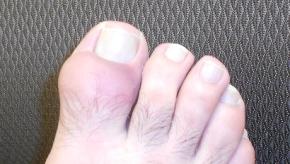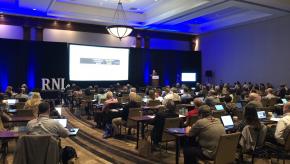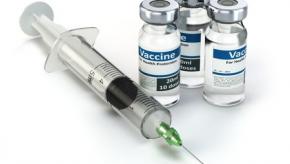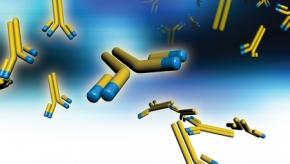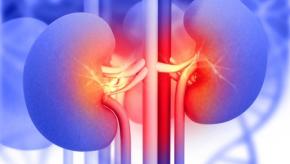All News
Global Rheumatology Alliance Registry Will Study COVID-19
In the midst of a global pandemic of the 2019 Novel coronavirus acute respiratory disease (COVID-19), a small handful of Rheumatologists gathered on social media to collectively grapple with the impact of this virus on vulnerable populations with rheumatic disease.
COVID-19 Rheumatology News
With the COVID-19 pandemic dynamically changing, we have provided several news items germane to the Rheumatologist.
Read ArticleRheumNow Podcast - Despite Corona (3.6.20)
Dr. Jack Cush reviews the news and journal articles from the past week on RheumNow.com.
Interleukin-37 Targeting in Gout
The Annals of Rheumatic Disease reports that interleukin- 27 (IL-37) may play an important role in the pathogenesis of gout, paving the way for future therapy with recombinant IL-37 in gouty arthritis.
Read ArticleRheumNow Podcast- Methotrexate Mechanisms (2.28.20)
Dr Jack Cush Reviews the news and journal articles from the past week on RheumNow.com
Read ArticleWhy You Should Come to RheumNow Live March 13th
RheumNow Live kicks off its second annual meeting - a little, big meeting in Fort Worth - in just 2 weeks and I think you should be there.
Read ArticleShingles Vaccine Lowers Risk of CVA
Shingles infection has been historically linked to an increased risk of stroke. A new study found that Zoster Vaccine Live, one type of shingles vaccination, may prevent stroke in some older adults.
Read ArticleBimekizumab Effective in Active Psoriatic Arthritis
Interleukin 17 IIL-17) is important in the pathogenesis of psoriatic disease, with most current approaches targeting IL-17A. Now there is a noveal approach showing that dual neutralisation of IL-17A and IL-17F in psoriatic arthritis arthritis patients results in clinically significant improvement.
Read ArticleRheumNow Podcast- Best Biologics (2.7.20)
Dr Jack Cush reviews the news and journal articles from the past week on RheumNow.com
Read ArticleRheumNow Podcast- 2019 EULAR RA Guidelines (1.31.20)
Dr. Jack Cush reviews the news and journal articles from the past week on RheumNow.com.
Read ArticleRheumNow Podcast- A Good First Impression (1.24.20)
Dr Jack Cush comments on this week's journal articles, reviews and studies.
Read ArticleLow Risk of Inflammatory Arthritis in Hidradenitis Suppurativa Patients
JAMA Dermatology reports that after the onset and diagnosis of hidradenitis suppurativa (HS), such patients have a higher risk of certain forms inflammatory arthritis.
Read ArticleQD Clinic - Hepatitis B and Biologics
QD Clinic - Lessons from the clinic
Active HBV infection (HGsAg+) on anti-viral therapy but needs a biologic - what should you use?
RheumNow Podcast- The Down Side of Steroids (1.17.20)
Dr. Jack Cush reviews the journal reports and news from RheumNow.com.
Be sure to register for RheumNow Live 3/13/2020 in Fort Worth
Rheumnow.live.
TULIP2 - Anifrolumab Succeeds in Lupus
NEJM has published the results of the TULIP2 trial with anifrolumab, an alpha interferon blocker, in the treatment of systemic lupus erythematosus, showing significant improvement (over placebo) in multiple lupus outcome measures, including BICLA, SRI-4, CLASI and others.
Steroids Up the Risk of Organ Damage in SLE
Lancet Rheumatology has reported the results of a multicenter follow-up study of systemic lupus erythematosus (SLE) patients showing that organ damange is linked to glucocorticoid use, independent of clinical or serological disease activity.
Read ArticleBest of 2019 - Ups and Downs with Abatacept
Two recent studies have examined the effect of starting abatacept upon the risk of serious hospitalized infections or cancer, showing divergent results from claims data analyses.
Read ArticleBest of 2019 - 2019 EULAR Guidelines on Antiphospholipid Syndrome Management
A EULAR task force has reviewed the medical literature and developed evidence-based recommendations for the management of antiphospholipid syndrome (APS) in adults. They note that a high-risk antiphospholipid antibody (aPL) profile is associated with greater risk for thrombotic and obstetric APS.
Read ArticleRheumNow Podcast - The Elusive Hand OA Problem (12.13.19)
Dr. Jack Cush recaps the news and journal reports from the past week on RheumNow.com.
Read ArticleACR/EULAR Classification Criteria for IgG4 Related Disease
IgG4-related disease (IgG4-RD) is a relatively new disorder since 2003, and may present as a diagnostic challenge as it can cause fibroinflammatory pathology in nearly any organ.
Read Article




